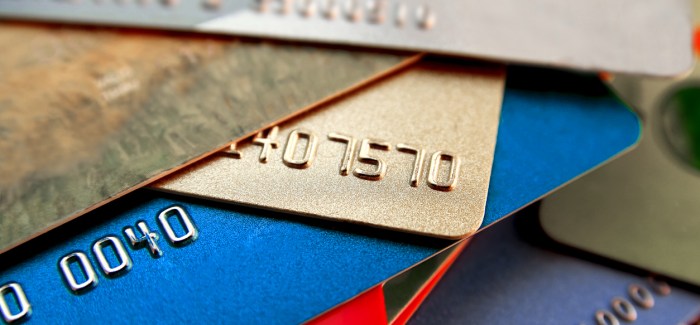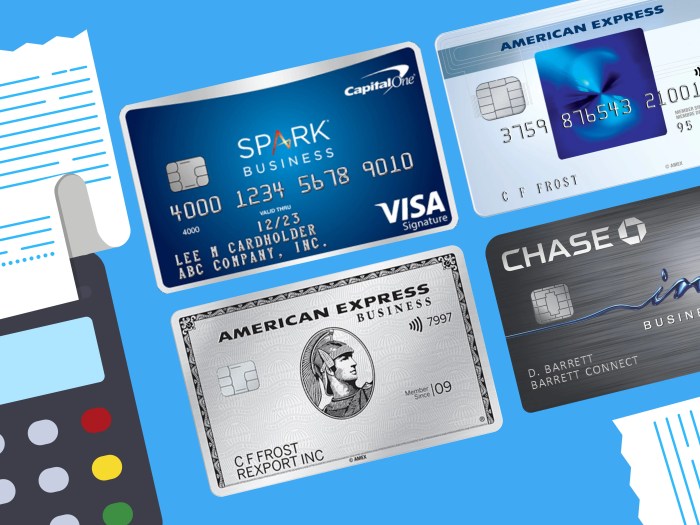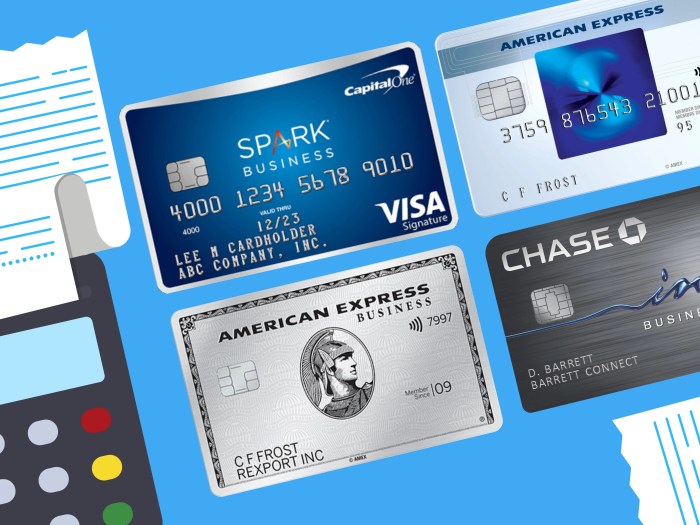Building a strong business credit history is essential for any small business owner, but it can be especially challenging if you’ve faced credit issues in the past. If you’re looking for the best business credit cards for small businesses with bad credit, you’re not alone.
Many lenders offer options specifically designed to help businesses with less-than-perfect credit get the financing they need to grow.
These cards can provide valuable tools for managing your business expenses, building your credit score, and even earning rewards. But it’s crucial to understand the specific features and benefits of these cards to find the right one for your needs.
Understanding Business Credit Cards for Small Businesses with Bad Credit
Obtaining a business credit card can be a valuable tool for small businesses, providing access to credit, rewards, and financial management features. However, for businesses with bad credit, securing approval for a business credit card can be a significant challenge.
Finding the best business credit cards for small businesses with bad credit can be a challenge, but it’s not impossible. While some cards might require excellent credit, others like the British Airways American Express may offer more flexible requirements. These cards can provide valuable rewards and perks, helping your business thrive even if you have a less-than-perfect credit history.
This section delves into the obstacles faced by small businesses with bad credit, highlighting the importance of building a strong business credit history and offering strategies to improve credit scores and access financing options.
Challenges Faced by Small Businesses with Bad Credit
Small businesses with bad credit often encounter various obstacles when applying for business credit cards. Lenders typically assess creditworthiness based on several factors, including:
- Credit Score:A low credit score, reflecting past financial difficulties or missed payments, can significantly hinder approval chances.
- Credit History:Limited or negative credit history, especially for newly established businesses, makes it challenging for lenders to assess creditworthiness.
- Financial Stability:Lenders evaluate factors like revenue, expenses, and cash flow to determine a business’s financial stability and ability to repay debt.
- Debt-to-Income Ratio:A high debt-to-income ratio, indicating a significant portion of income being used for debt repayment, can raise concerns about a business’s ability to manage additional debt.
Building a Strong Business Credit History, Best business credit cards for small businesses with bad credit
Building a strong business credit history is crucial for small businesses, particularly those with bad credit. A positive credit history demonstrates financial responsibility and improves the chances of securing loans, credit cards, and other financing options. Here are some key strategies for building a strong business credit history:
- Establish a Business Credit Profile:Obtain a separate Employer Identification Number (EIN) for your business and apply for a business credit card or loan. This will help establish a dedicated business credit profile separate from your personal credit.
- Pay Bills on Time:Consistent and timely payment of all business obligations, including credit card bills, loans, and utilities, is crucial for building a positive credit history.
- Monitor Credit Reports:Regularly review your business credit reports from all three major credit bureaus (Equifax, Experian, and TransUnion) to ensure accuracy and identify any potential errors.
- Use a Business Credit Monitoring Service:Consider using a business credit monitoring service to track your credit score and receive alerts about changes or potential issues.
Improving Credit Scores and Securing Financing Options
For small businesses with bad credit, improving credit scores and securing financing options can be a challenging but achievable goal. Here are some tips to help navigate this process:
- Focus on Personal Credit:While building a strong business credit history is essential, improving your personal credit score can also benefit your business. A good personal credit score can positively impact your business creditworthiness, especially for new businesses.
- Seek Out Specialized Lenders:Consider working with lenders that specialize in providing financing options to businesses with bad credit. These lenders may have more lenient credit requirements and offer alternative financing solutions.
- Explore Alternative Financing Options:Explore alternative financing options, such as merchant cash advances, equipment financing, or invoice factoring. These options may have different eligibility criteria and terms compared to traditional loans or credit cards.
- Build Relationships with Suppliers:Establishing strong relationships with suppliers and negotiating favorable payment terms can help improve your cash flow and reduce reliance on credit.
Key Features and Benefits of Business Credit Cards for Bad Credit

Securing a business credit card can be a game-changer for small businesses, particularly those with less-than-perfect credit. While obtaining traditional business credit cards might be challenging, alternative options like secured and unsecured business credit cards with specific features can provide much-needed financial flexibility and support.
Secured Business Credit Cards
Secured business credit cards are ideal for businesses with bad credit, as they require a security deposit to be placed with the issuer. This deposit acts as collateral, mitigating the lender’s risk and increasing the chances of approval. Here are some key benefits:
- Enhanced Approval Odds:The security deposit serves as a guarantee for the lender, making approval more likely even with less-than-stellar credit.
- Credit Building Potential:Responsible use of a secured business credit card can help establish a positive credit history, paving the way for better credit card options in the future.
- Lower Interest Rates:Secured business credit cards often come with lower interest rates compared to unsecured options, making them more financially viable for businesses with bad credit.
Unsecured Business Credit Cards
Unsecured business credit cards are available to businesses with established credit history. However, for businesses with bad credit, finding an unsecured option can be challenging. These cards often come with higher interest rates and stricter eligibility criteria. Here are some advantages:
- Higher Credit Limits:Unsecured business credit cards typically offer higher credit limits compared to secured options, providing greater financial flexibility.
- Greater Rewards Potential:Unsecured business credit cards often offer more lucrative rewards programs, including cash back, travel miles, and other incentives.
Rewards Programs and Incentives
Business credit cards, both secured and unsecured, often offer rewards programs to incentivize spending and build loyalty. These programs can be valuable for small businesses, providing potential savings and additional benefits.
- Cash Back Rewards:Many business credit cards offer cash back on purchases, allowing businesses to earn a percentage of their spending back in the form of cash. This can help offset business expenses and boost profitability.
- Travel Rewards:Some business credit cards offer travel rewards, such as airline miles or hotel points. These can be redeemed for flights, hotel stays, and other travel expenses, potentially saving businesses money on travel costs.
- Other Incentives:Business credit cards may also offer other incentives, such as discounts on supplies, equipment, or services. These benefits can vary depending on the card issuer and the type of business.
Finding the Right Business Credit Card for Your Needs

Navigating the world of business credit cards can feel overwhelming, especially when you have less-than-perfect credit. However, finding the right card can be a game-changer for your small business, offering valuable benefits like financing, rewards, and building your business credit.
The key is to approach the process strategically, understanding your needs and carefully comparing options.
Comparing Business Credit Card Features
To find the best business credit card for your needs, start by evaluating key features and comparing different options. Here’s a step-by-step guide:
- Assess Your Business Needs:What are your primary goals for a business credit card? Are you looking for rewards, financing, or simply building business credit? Understanding your needs will help you narrow down your search.
- Research Available Options:Explore various credit card providers, including banks, credit unions, and online lenders. Read reviews, compare terms, and check for special offers or promotions.
- Compare Key Features:Use a table or comparison tool to analyze critical factors like APR, annual fees, credit limit, and rewards structure. This allows for side-by-side comparisons and helps you make informed decisions.
Key Factors to Consider
Here’s a table outlining key factors to consider when comparing business credit cards:
| Factor | Description | Importance |
|---|---|---|
| APR (Annual Percentage Rate) | The interest rate you’ll pay on your balance if you carry a balance. | Lower APRs save you money on interest charges. |
| Annual Fee | A yearly charge for having the card. | Consider the value of the benefits against the annual fee. |
| Credit Limit | The maximum amount you can borrow on the card. | A higher credit limit provides more flexibility. |
| Rewards Structure | The type and amount of rewards you earn for using the card. | Choose rewards that align with your business spending habits. |
| Perks and Benefits | Additional features like travel insurance, purchase protection, or extended warranties. | Consider the value of these benefits for your business. |
Pros and Cons of Business Credit Card Options
Once you’ve considered the key factors, it’s helpful to weigh the pros and cons of various credit card options. This can be done using a comparison chart, which allows for a clear visual representation of the strengths and weaknesses of each card.
| Credit Card | Pros | Cons |
|---|---|---|
| Card 1 | Low APR, generous rewards program, good credit limit | High annual fee, limited perks |
| Card 2 | No annual fee, flexible rewards structure, good customer service | Higher APR, lower credit limit |
| Card 3 | Excellent travel rewards, purchase protection, extended warranties | High APR, high annual fee, limited credit limit |
Conclusion: Best Business Credit Cards For Small Businesses With Bad Credit
Securing a business credit card with bad credit might seem daunting, but it’s not impossible. By carefully evaluating your options, understanding the terms, and utilizing these cards responsibly, you can unlock valuable resources for your business. Remember, building a strong credit history takes time and effort, but it’s a worthwhile investment in your business’s future.
